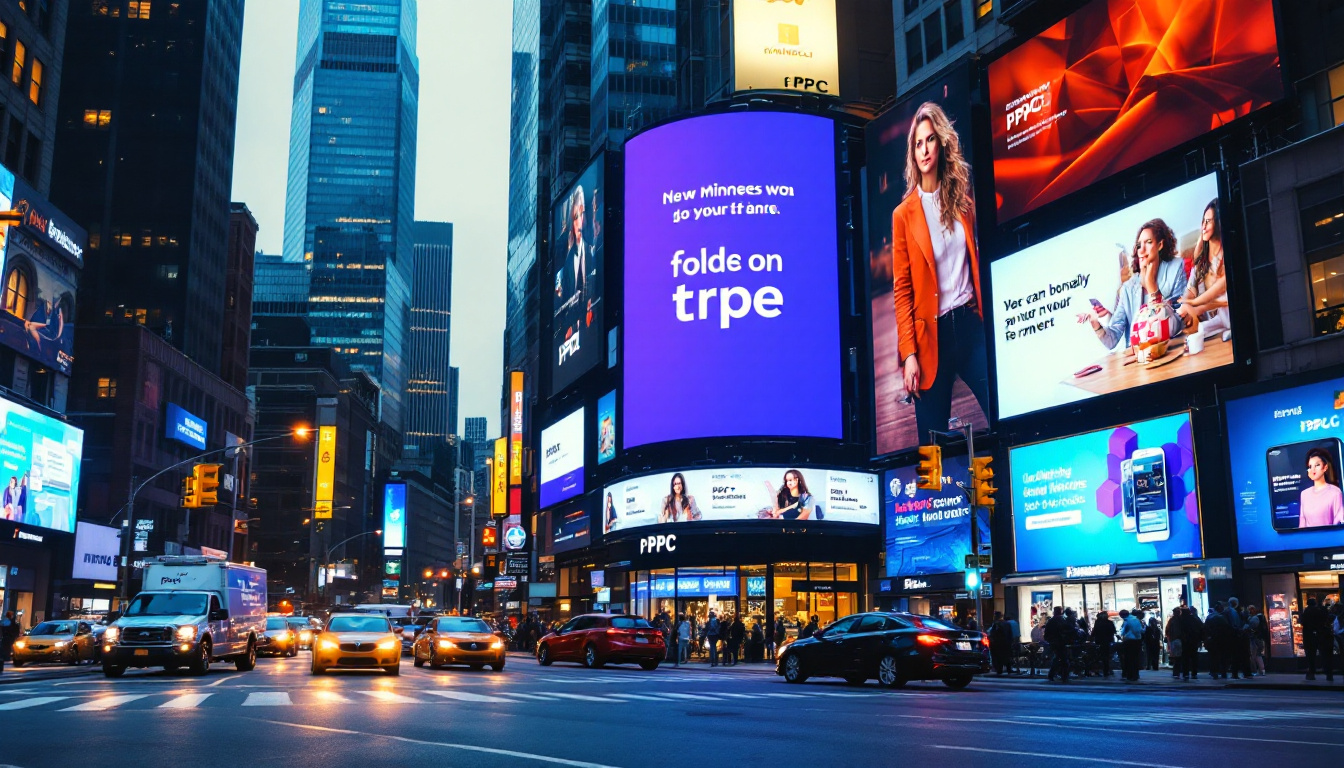10 Quick PPC Tips for Small Businesses in Minneapolis, MN

PPC (Pay-Per-Click) advertising is a powerful method for small businesses to reach potential customers quickly and effectively. For small businesses in Minneapolis, MN, navigating the realm of PPC can seem daunting. However, with the right approach, it can drive significant traffic and increase conversions. This article shares 10 quick tips designed to optimize your PPC campaigns.
Tips for crafting compelling ad copy
Your ad copy is often the first interaction potential customers have with your business, so it’s crucial to make it compelling. Start by clearly defining the problem your product or service solves. This not only grabs attention but also establishes a connection with the audience, making them feel understood and valued. For instance, if you're selling a skincare product, highlight how it addresses common issues like dryness or acne, and emphasize the transformation your product can bring.

Incorporate emotional triggers that resonate with your audience. Use powerful adjectives to create a sense of urgency and always aim for a strong call-to-action (CTA) such as "Buy Now" or "Get Your Free Quote Today!" Additionally, consider the tone of your language; a friendly, conversational tone can make your ad feel more relatable, while a more formal tone might be appropriate for professional services. Experiment with different styles to see what resonates best with your audience.
Furthermore, consider using variations of your ads. A/B testing allows you to experiment with different headlines, descriptions, and CTAs. This helps in determining which versions perform best, enabling you to tailor your approach based on data rather than intuition. Keep in mind that even small changes, such as altering the color of your CTA button or the phrasing of your headline, can lead to significant differences in conversion rates.
Understanding your target audience
Know who your ideal customers are. Utilize customer personas to create tailored messages that speak directly to different segments of your audience. This involves not just demographic information, but also understanding their pain points, aspirations, and buying behaviors. For example, a tech-savvy audience might appreciate detailed specifications and innovative features, while a more general audience may respond better to simplicity and ease of use.
Analyze the demographics, interests, and online behaviors of your target audience. The more specific you are, the more effective your ad copy can be. Utilize social media insights, customer feedback, and market research to gather data that can inform your messaging. This deep understanding will allow you to craft ad copy that not only attracts attention but also fosters trust and encourages engagement.
Incorporating relevant keywords
Keywords play a vital role in ad visibility. Research and choose relevant keywords that your target audience is searching for. This is not just about high-volume keywords; consider long-tail keywords that reflect specific queries or needs. These keywords often have less competition and can lead to higher conversion rates as they target users who are further along in the buying process.
Use tools like Google Keyword Planner to identify popular search terms. Sprinkle these keywords naturally in your ad copy but avoid keyword stuffing, as it can be detrimental to both the relevance and readability of your ads. Remember that the ultimate goal is to create compelling content that engages your audience while also meeting search engine criteria. Balancing these elements will enhance your ad performance and drive more qualified traffic to your business.
How to use geo-targeting effectively
Geo-targeting is particularly advantageous for small businesses in a specific location, such as Minneapolis. This feature allows you to show your ads to users in designated geographical areas, increasing the chances of conversion. By honing in on a local audience, businesses can create a more personalized experience that resonates with potential customers, leading to higher engagement rates and ultimately, sales.
When setting up geo-targeting, refine your focus based on cities, zip codes, or even specific neighborhoods within Minneapolis. This ensures your ads reach the right audience, maximizing your ad spend. Additionally, consider the demographics of these areas. Understanding the local population's preferences and behaviors can further enhance your targeting strategy, allowing you to craft messages that truly speak to the community.
Customizing geographic settings
Furthermore, customize your ads based on the location. Highlight local landmarks, references to nearby neighborhoods, or mention local events to create a connection with the audience. For instance, if your business is near the iconic Mall of America, incorporating that into your advertising can attract shoppers who are already in the area. This localized approach not only boosts relevance but also fosters a sense of community, encouraging customers to choose your business over competitors.
Using phrases like "Your local solution in Minneapolis" can make your business appear more approachable and relatable to potential customers. Additionally, consider leveraging user-generated content from local patrons or testimonials that reflect the unique experiences of your Minneapolis clientele. This strategy not only builds trust but also showcases your business as an integral part of the local landscape.
Tracking results by location
Always monitor the performance of your PPC campaigns by location. Utilize analytics tools to identify which areas yield the best results. By analyzing metrics such as click-through rates and conversion rates, you can gain insights into how different neighborhoods respond to your ads, allowing for more strategic adjustments.
This data allows you to make informed decisions about where to allocate your budget, enabling you to focus on locations that provide the highest return on investment. Consider running A/B tests in various locations to further refine your approach. By experimenting with different ad copy, visuals, and offers tailored to specific neighborhoods, you can pinpoint what resonates best with each segment of your audience, ultimately enhancing the effectiveness of your geo-targeting efforts.
Best practices for budget allocation
Budget allocation is essential for a successful PPC strategy. Start by setting a clear budget based on your business goals and current marketing strategy.
Determine what you can afford to spend on a daily or monthly basis, and factor in the cost-per-click (CPC) for your chosen keywords. Make sure to leave room for testing different campaigns.
Dynamic budget adjustments
Be prepared to adjust your budget dynamically as you gather data from your campaigns. If certain keywords or ads are underperforming, consider reallocating those funds to more successful campaigns.
This flexibility is crucial for optimizing your PPC strategy efficiently. Regular reviews of your budget and performance metrics should be a foundational part of your approach. Additionally, utilizing automated tools can help streamline this process, allowing for real-time adjustments based on performance indicators. These tools can analyze data trends and suggest optimal budget reallocations, making your PPC management more efficient and effective.
Utilizing budgets for experimentation
Integrate a portion of your budget for experimentation. Testing different strategies, ad formats, or even bidding techniques can provide insight into what works best for your audience.
Experimentation without risk can improve your understanding of the digital landscape and help refine your overall strategy. Consider allocating a specific percentage of your budget to A/B testing various ad copies or landing pages. This not only helps in identifying high-performing elements but also fosters a culture of continuous improvement within your marketing team. Furthermore, don’t shy away from exploring new platforms or emerging technologies; sometimes, the best opportunities lie outside your usual channels, and a small investment can yield significant returns in the long run.
Why testing is crucial in PPC campaigns
Testing is a fundamental aspect of PPC advertising. Without continuous testing, it’s difficult to gauge the effectiveness of your strategies or make necessary adjustments.
Engage in various types of testing, including A/B testing on ad copy, landing pages, and targeting options. This will allow you to optimize for performance based on real user behaviors.
Test and iterate
Consider establishing a testing cycle where you regularly implement new ideas, analyze results, and iterate based on findings. This cycle keeps your ads fresh and increases the likelihood of better engagement.
Moreover, document your tests and results, as this data can inform future campaigns and decisions.
Understanding statistical significance
When testing, ensure the results you observe are statistically significant. Running tests for a brief period may yield misleading results due to a lack of sufficient data.
Your goal should be to run tests long enough to gather adequate data, enabling clearer insights and better decision-making for future efforts.
How to use extensions to enhance ad visibility
PPC ad extensions provide additional information about your business and can lead to improved click-through rates (CTR). Utilize amenities like sitelinks, call extensions, and location extensions.

Sitelinks allow you to showcase additional links to relevant content while call extensions enable users to call your business directly from the ad. These enhancements often lead to increased engagement and higher conversion rates.
Choosing the right extensions
Select extensions that best fit your business and audience. For example, if your business relies heavily on phone inquiries, call extensions can be crucial.
On the other hand, if your business operates multiple lines of service, sitelinks can direct users to specific offerings, simplifying their journey to conversion.
Monitoring extension performance
Regularly monitor the performance of your ad extensions. Use the insights gained to adjust strategies on what types of extensions are working best for your campaigns.
Staying informed on the performance of your ad extensions can significantly boost the overall effectiveness of your PPC efforts.
By implementing these tips, small businesses in Minneapolis can enhance their PPC strategies, driving more traffic and ultimately increasing conversions. With the right approach, even businesses with limited budgets can see impressive results from their PPC investments.

As a Google Ads expert, I bring proven expertise in optimizing advertising campaigns to maximize ROI.
I specialize in sharing advanced strategies and targeted tips to refine Google Ads campaign management.
Committed to staying ahead of the latest trends and algorithms, I ensure that my clients receive cutting-edge solutions.
My passion for digital marketing and my ability to interpret data for strategic insights enable me to offer high-level consulting that aims to exceed expectations.
































